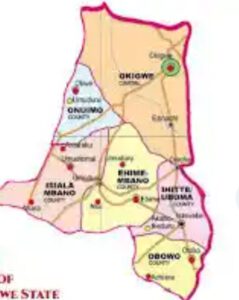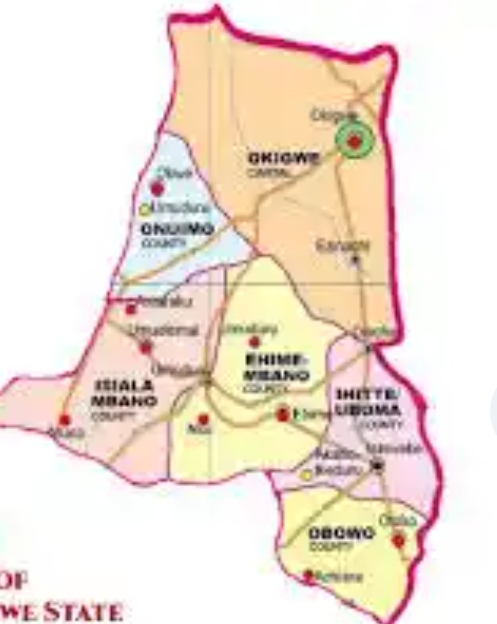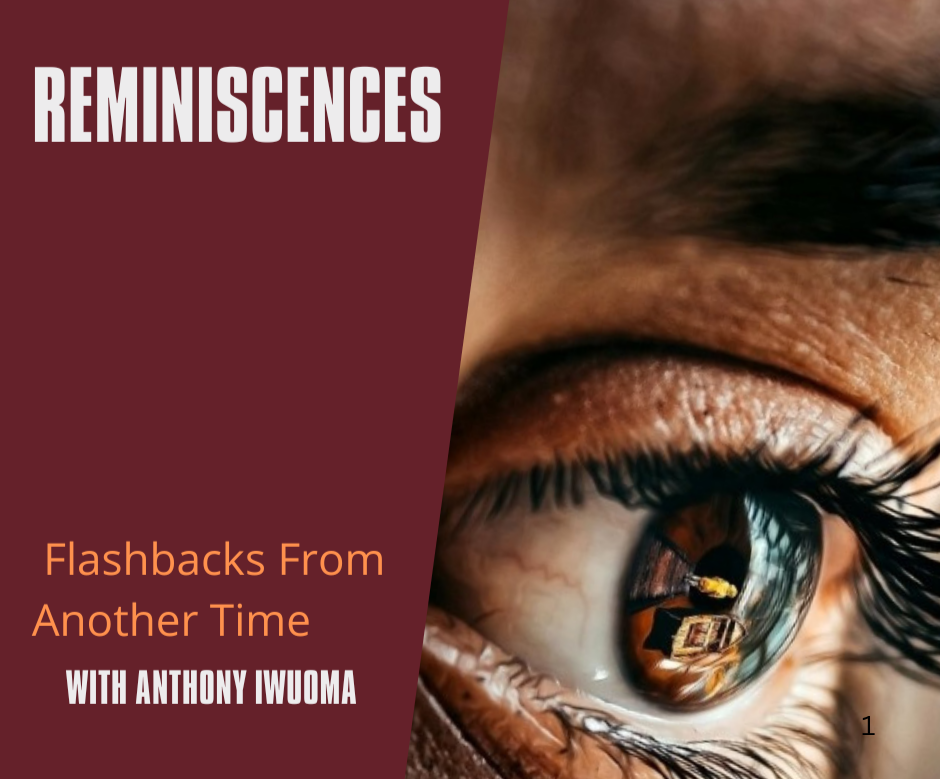
By Bose
Kindly share
By Anthony Iwuoma
For Nigeria, 2027 has come too early. It is scheduled for another electoral cycle, but for whatever reasons, politicians have set sail before the blast of the whistle, and the electoral umpire seems hamstrung to pull back the reins.
To avoid being caught unprepared, it is essential to establish from the outset that the matter of Imo North (Okigwe) Senatorial District’s representation in the Nigerian Senate is more than an individual political victory; it is a reflection of balance, fairness, and inclusiveness among the constituent parts of the zone.
The question of which bloc should produce the next Senator in 2027 should begin to dominate political conversations, objectively.
Since the return of democracy in 1999, the Senate seat has rotated among the six local governments that comprise the zone, Old Okigwe (Okigwe and Onuimo), Old Mbano (Isiala Mbano and Ehime Mbano), and Old Etiti (Ihitte Uboma and Obowo), but not in an even or balanced manner. Some areas have enjoyed stable and repeated senatorial tenures, while others, most notably Ehime Mbano in Old Mbano, have not.
As stakeholders consider the road to 2027, this report examines the history of the blocs in the Senate and concludes where fairness and political balance point for 2027.
The old Okigwe bloc currently occupies the Senate through Senator Patrick Ndubueze (Okigwe LGA), who was elected in 2023. His election gave Old Okigwe renewed visibility at the national level.
Before Ndubueze, the Old Okigwe’s senatorial presence in the Fourth Republic had been relatively thin. Compared to Isiala Mbano (Ararume), Ihitte Uboma (Benjamin Uwajumogu), or Obowo (Matthew Nwagwu and Sylvester Anyanwu). Nevertheless, with Ndubueze’s current mandate, the bloc is now firmly in control of the position.
By equity principles, Old Okigwe’s case is straightforward: it currently holds the Senate seat. Therefore, the zone cannot reasonably justify leaving the position in Old Okigwe in 2027, as that would distort the balance and sideline other blocs.
While Old Okigwe rightly joins the complaints of marginalisation of the zone at the state level, particularly in the rotation of the governorship position, it must also be mindful of fairness within the Okigwe Zone itself. It would be contradictory for Old Okigwe to cry foul at the state level while practicing or encouraging the very same marginalisation at home by holding onto the Senate seat beyond 2027. Political equity must be consistent; one cannot demand justice from others while denying it to one’s immediate neighbours.
The verdict is that Old Okigwe has taken its turn with the Senate through Ndubueze’s ongoing tenure. For 2027, equity dictates that the seat rotates away from Old Okigwe.
Old Mbano (Isiala Mbano and Ehime Mbano)
Old Mbano has produced some of the most prominent Senators from Okigwe Zone, but the distribution between its two LGAs is sharply uneven.
Isiala Mbano produced Senator Ararume (1999–2007), serving two full terms of eight years. He is the longest-serving Senator from Okigwe Zone in the Fourth Republic. His tenure was stable, continuous, and highly visible, establishing Isiala Mbano’s complete senatorial record.
On the other hand, Ehime Mbano produced Senator Athan Achonu (2015), who briefly occupied the seat but was removed by court judgment after only a few months for Uwajumogu. Senator Frank Ibezim (2021–2023) came on board after a lengthy litigation to complete the tenure of Uwajumogu, who died before the expiration of his term. Ibezim joined the Senate but served only for a brief term before the 2023 elections; he was denied a ticket to contest.
The cumulative reality is that Ehime Mbano has never enjoyed a full, stable four-year senatorial tenure, unlike Isiala Mbano, Obowo, Ihitte Uboma, or Okigwe.
Here lies the heart of the equity argument: For fairness, Ehime Mbano deserves the chance to hold the Senate seat for a full, stable term, just as Isiala Mbano, Obowo, Ihitte Uboma, and now Okigwe have enjoyed.
Old Mbano is the largest and most populous bloc in Okigwe Zone. Its voter numbers are unmatched. In every election cycle, Mbano’s votes are decisive. No party or candidate can win Okigwe Zone without Mbano’s backing.
This demographic weight strengthens Old Mbano’s claim: equity should align with the bloc that carries the heaviest electoral responsibility.
However, despite its size, Mbano has historically lagged in federal presence and development. Part of the reason is its unstable Senate record, particularly in Ehime Mbano. A stable, uninterrupted senatorial tenure would bring overdue balance and attract federal attention.
Without aggravating the discourse by visiting the House of Representatives and the state House of Assembly, Ihitte Uboma’s Senate stake is already satisfied with Uwajumogu. Obowo’s two terms in the Senate through Nwagwu and Anyanwu, and its entrenched hold on the House of Reps and State Assembly, cancel out its Senate intention.
The record is clear that Old Okigwe is currently in possession of the Senate through Patrick Ndubueze. For 2027, the principle of rotation requires it to step aside. Old Etiti has had a Senator in Uwajumogu. Obowo has had two senators in Nwagwu and Anyanwu, and dominates the House of Representatives.
Regarding Old Mbano, particularly Ehime Mbano, despite repeated efforts, Ehime has never held a full, stable four-year term in the Senate. Its history features short, interrupted intervals (Achonu, Ibezim), leaving its rightful representation incomplete.
Therefore, the conclusion is undeniable. Equity is indivisible. Fairness for Okigwe Zone at the national or state level must be matched by fairness for its component units at home. That balance points unambiguously to Ehime Mbano as the bloc that deserves the Senate seat in 2027. Having consistently played a pivotal role in the zone’s political victories without proper representation, the people of Ehime Mbano cannot remain perpetual kingmakers while others enjoy the benefits of leadership.
This objective analysis concludes that the time has come to correct the imbalance in Imo North and give the Senate seat to Ehime Mbano, not as tokenism; not only to promote fairness but also to leverage the proven capacity, vision, and grassroots strength of its people for the collective progress of Imo North. Thankfully, Ehime Mbano is brimful with capable and transformative hands and voices to go for the Zone and bring home the goodies.
Anthony Iwuoma is a political analyst and newspaper columnist. He wrote from Owerri.





